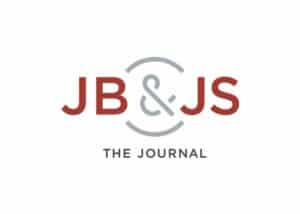
It is not yet clear whether current and emerging biologic strategies to treat musculoskeletal injuries will provide tangible benefits to patients . Platelet-rich plasma (PRP) is used widely despite a lack of evidence supporting its efficacy. Enthusiasm for mesenchymal stem cell (MSC)-based therapies is reflected by the prodigious number of clinical trials registered at ClinicalTrials.gov to evaluate their use in the treatment of a host of musculoskeletal conditions. Unfortunately, clinical trials evaluating PRP or MSCs that have been published to date have failed to include sufficient experimental detail or to describe even basic attributes of formulations delivered, including platelet and leukocyte concentrations in PRP and basic cell characterization of MSCs, all of which critically influence outcome. This precludes interpretation of the exact nature of biologic formulations delivered, prevents comparison between studies, and makes replication by others impossible. The complexity of biologic therapies and the wide array of preparation methods, protocols, and methods of delivery only increase this challenge. Minimum standards of reporting are therefore required to facilitate accurate critical appraisal of emerging clinical studies evaluating PRP and MSCs in orthopaedics.
Growth factors released by platelets may contribute to tissue regeneration by stimulating progenitors, by dampening local inflammatory responses, and by promoting angiogenesis. As such, there is a good rationale for exploiting platelet-rich concentrates to accelerate healing. Promising preliminary in vitro studies and modest regulatory barriers have buoyed popularity, despite a lack of robust clinical evidence supporting efficacy. PRP represents a broad spectrum of preparations containing variable levels of platelets, leukocytes, and red cells, with >300 distinct cytokines and growth factors reported to date. At present, there are >17 commercially available kits, each yielding PRP with differing compositions and characteristics. Ultimately, the bioavailability of growth factors delivered as PRP depends on individual patient characteristics, platelet concentration, levels of leukocytes and red cells, and the method of activation, among other variables. Accurate and complete reporting of all factors that may influence biologic activity and outcomes is therefore essential if future clinical studies are to identify optimal preparations for individual applications.
MSCs are adult stem cells with the ability to become specialized musculoskeletal cells, modulate immune responses, and release trophic cytokines, making them attractive regenerative substrates. The term MSC has been used to describe multiple heterogeneous cell types isolated using different methods from multiple sources including bone marrow and adipose tissue, among others. These cells have been assigned multiple names, such as multipotent adult progenitor cells, marrow isolated multilineage inducible cells, and multipotent adult stem cells. Given this heterogeneity, accurate descriptions of the provenance, preparation methods, and characteristics of MSC populations are essential in order to understand the nature of the cells used in clinical studies.
In response to clear evidence that the reporting of methodology in clinical studies is imperfect, there has been effort to set standards. A lack of adequate reporting in randomized controlled trials (RCTs) fueled the development of the original CONSORT (Consolidated Standards of Reporting Trials) statement in 1996, which has subsequently been revised and updated. Since then, reporting guidelines for observational studies (Strengthening the Reporting of Observational Studies in Epidemiology; STROBE) and meta-analyses (Preferred Reporting Items for Systematic Reviews and Meta-Analyses; PRISMA) have become widely recognized. The use of mini- mum reporting standards has led to improvements in the quality of the reporting of study design in clinical studies. While these existing checklists guide the reporting of universal study design features, they do not specify the inclusion of scientific variables that are specific to the study of PRP and MSCs.
To encourage improved reporting standards, our purpose was to develop consensus on the minimum reporting requirements for clinical studies evaluating PRP and MSCs, using modified Delphi techniques. These methods have been used widely in the development of consensus in health research and in advancing clinical practice.
Full Article: Minimum Information for Studies Evaluating Biologics in Orthopaedics (MIBO): Platelet-Rich Plasma and Mesenchymal Stem Cells
